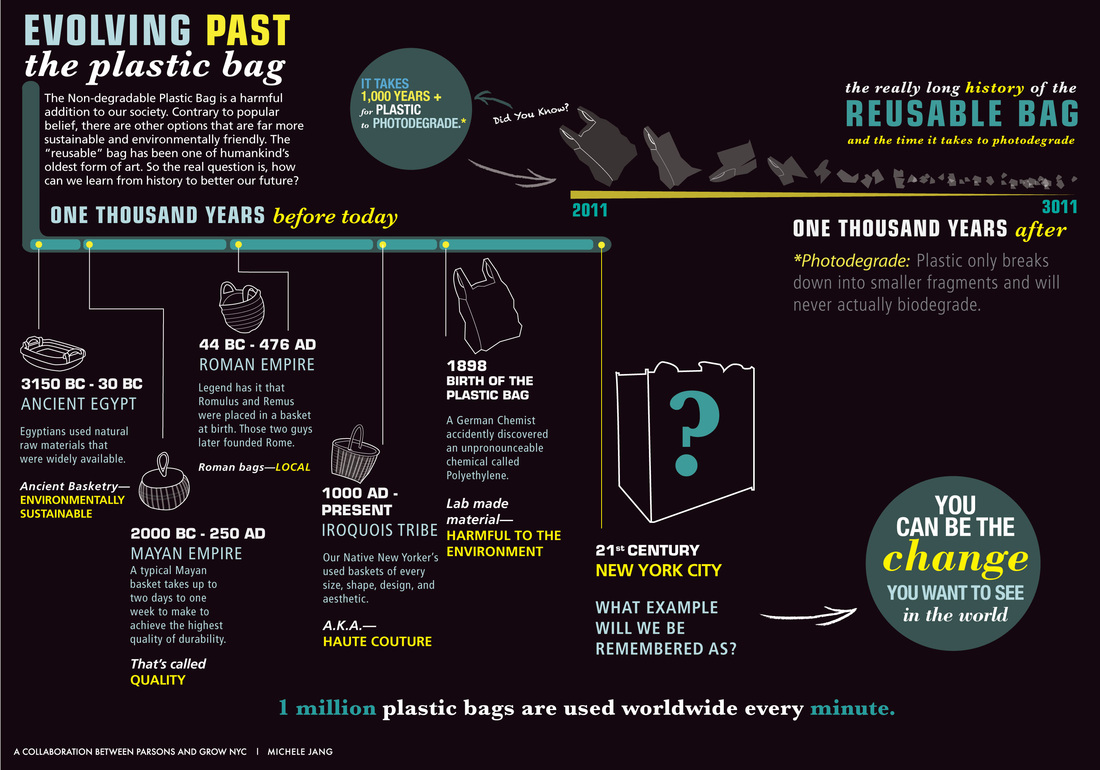Plastic Bags
Consumers should be aware that “biodegradable” and “degradable” do not mean the same thing:
|
Degradable
means it will break down into smaller pieces – not necessarily good for the environment. Degradable carrier bags are oxo‐biodegradable bags. These bags are composed of petroleum‐based plastics and feel the same as regular plastic bags. A common brand found on these bags is EPI, with the claim of “100% degradable”. |
Biodegradable
Under the right conditions it can be consumed by micro‐organisms, resulting in water, carbon dioxide and organic matter. |
There are 3 kinds of degradable and biodegradable bags:
|
Compostable bags:
usually will only biodegrade into non-toxic residue in commercial/industrial composting facility. |
Oxo‐biodegradable:
With help from a chemical additive, these bags become brittle in sunlight, with the remnants biodegrading over time. |
Water‐soluble:
break down in water, then biodegrade through the action of micro‐organisms in the sewage treatment system. |
Issues of Concern:
Questions remain about how long these bags take to biodegrade, whether they actually can biodegrade in landfill conditions, and if toxins remain in the environment afterwards.
There are two kinds of oxo‐biodegradable bags, one of which interferes with the recycling of conventional plastic bags.
Remember that oxo‐biodegradable bags are made from non‐renewable, fossil fuels, so they use the same amount of energy and resources as conventional plastic grocery bags. Plus, if they do break down in a landfill the materials are wasted instead of recycled.
